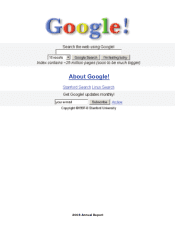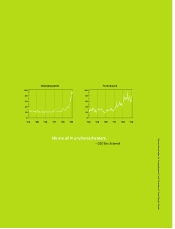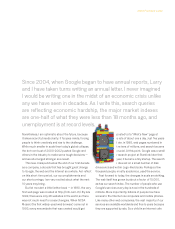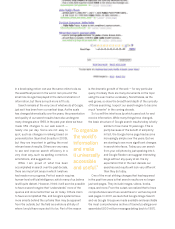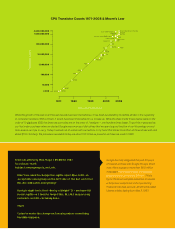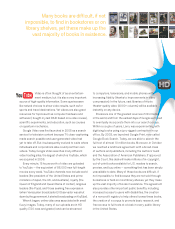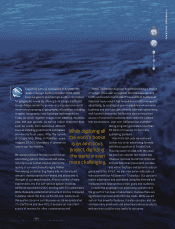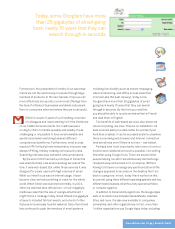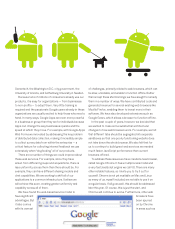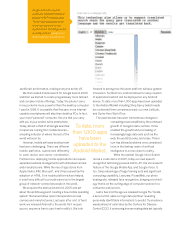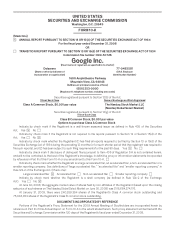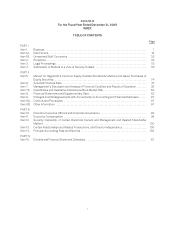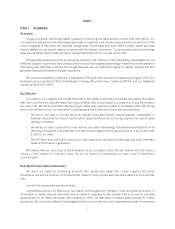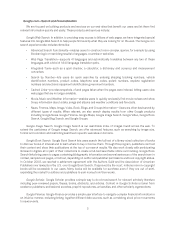Google 2008 Annual Report Download - page 10
Download and view the complete annual report
Please find page 10 of the 2008 Google annual report below. You can navigate through the pages in the report by either clicking on the pages listed below, or by using the keyword search tool below to find specific information within the annual report.
Genentech, the Washington D.C. city government, the
University of Arizona, and Gothenburg University in Sweden.
Because tens of millions of consumers already use our
products, it is easy for organizations — from businesses
to non-profi ts — to adopt them. Very little training is
required and the passionate Google users already in these
organizations are usually excited to help those who need a
hand. In many ways, Google Apps are even more powerful
in a business or group than they are for individuals because
Apps can change the way businesses operate and the
speed at which they move. For example, with Google Apps
Web Forms we innovated by addressing the key problem
of distributed data collection, making it incredibly simple
to collect survey data from within the enterprise — a
critical feature for collecting internal feedback we use
extensively when “dogfooding” all of our products.
There are a number of things we could improve about
these web services. For example, since they have
arisen from di erent groups and acquisitions, there is
less uniformity across them than there should be. For
example, they can have di erent sharing models and
chat capabilities. We are working to shift all of our
applications to a common infrastructure. I believe we
will achieve this soon, creating greater uniformity and
capability across all of them.
We have found the web-based service model to
have signifi cant
advantages. But
it also comes
with its own set
of challenges, primarily related to web browsers, which can
be slow, unreliable, and unable to function o ine. Rather
than accept these shortcomings, we have sought to remedy
them in a number of ways. We have contributed code and
generated revenue for several existing web browsers like
Mozilla Firefox, enabling them to invest more in their
software. We have also developed extensions such as
Google Gears, which allows a browser to function o ine.
In the past couple of years, however, we decided that
we wanted to make some substantial architectural
changes to how web browsers work. For example, we felt
that di erent tabs should be segregated into separate
sandboxes so that one poorly functioning website does
not take down the whole browser. We also felt that for
us to continue to build great web services we needed
much faster JavaScript performance than current
browsers o ered.
To address these issues we have created a new browser,
called Google Chrome. It has a multiprocess model and
a very fast JavaScript engine we call V8. There are many
other notable features, so I invite you to try it out for
yourself. Chrome is not yet available on Mac and Linux
so many of us, myself included, are not able to use it on
a regular basis. If all goes well, this should be addressed
later this year. Of course, this is just the start, and
Chrome will continue to evolve. Furthermore, other web
browsers have
been spurred
on by Chrome
in areas such as

